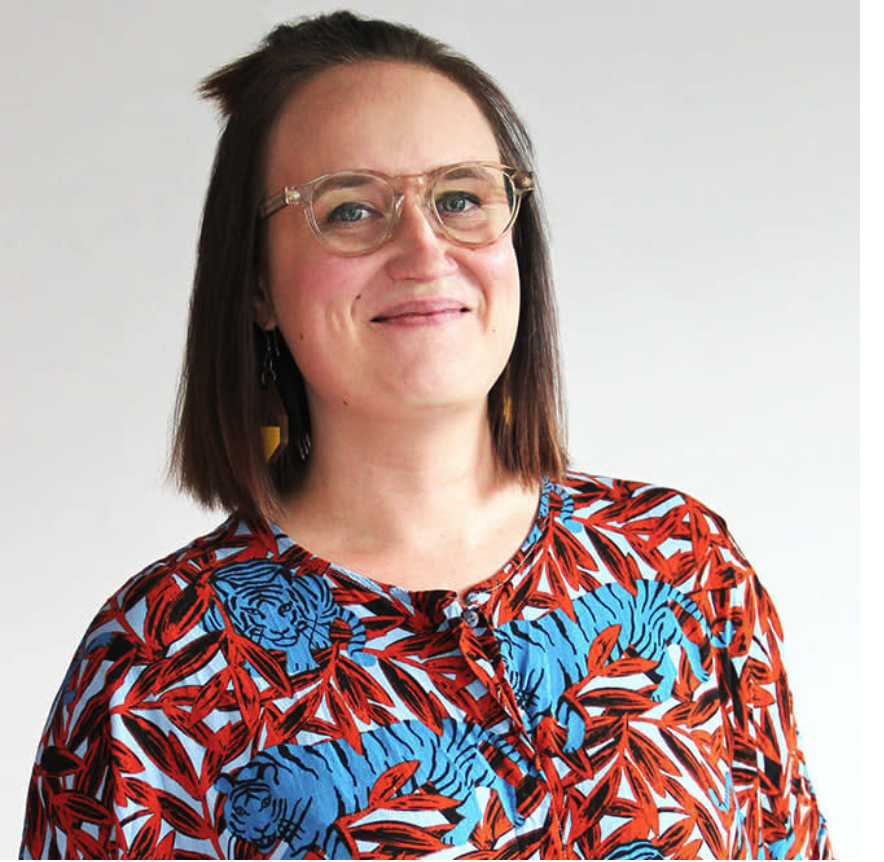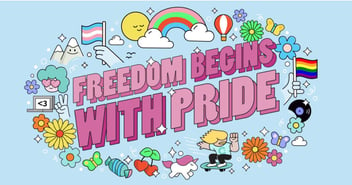We want to do our part in making the digital world more inclusive. One part of that work is our partnership with Helsinki Pride – and sharing the lessons we’ve learned on our own DEIB (diversity, equity, inclusion, and belonging) journey.
Here are some tips to become a better ally at your workplace.
Pride is not meant for me, so why should I care?
Allyship is about your team members – the ones you know about and those you don’t. The ones who often feel like the only one in the room and may hesitate to share things about their lives in fear of being treated differently or making their career advancement harder than it otherwise would be.
Studies on the experience of LGBTQIA+ people (sexual and gender minorities) show that:
- In Finland, only 8% feel that they can be very open about being LGBTQIA+ at work (FRA)
- In Finland, 35% avoid holding hands with their same-sex partner in public (FRA)
- Globally, 37% feel comfortable being open to their direct managers about their sexual orientation or gender identity (Deloitte).
We can do better.
🤝 Build trust and respect
- Everyone: We are all mood leaders. Being an ally means stepping up to ensure that everyone is treated with respect regardless of their gender, age, language, ethnicity, nationality, religion, physical or cognitive ability, sexual orientation, family relationships, or other personal characteristics.
You don’t have to fully understand another person's perspective or experience to respect them and their self-identity by, for example, referring to them with the same labels they apply to themselves – also “behind their back”.
How we talk about minority groups when we presume that they’re not present or listening is crucial to building safe physical and digital spaces. A genuinely welcoming workplace culture encourages everyone space to be themselves – especially those who are still figuring out who they are. Many people come out in their late teens, but another often-overlooked group is people in their 40s and 50s. - Leaders: Start with strategy. Set measurable targets for diversity and belonging and keep tracking and talking about your progress.
In our annual report, our sustainability targets are on the same page as our business targets. Our culture handbook describes our purpose (Better Mondays) and way of working (Always Good Company) and how they guide us in our decision-making, daily work, and building welcoming communities.
👂Listen
- Everyone: Be available for your coworkers, take a genuine interest in their experiences, and listen. When people share their experiences with you, a great response is “I believe you.”
- Leaders: In meetings, learn to step out of the spotlight and make sure that everyone is heard. You can ask questions from people who are often overlooked and use facilitation techniques that promote more equal interaction (for example me-we-us).
In your employee surveys, deliberately seek feedback from underrepresented groups. Provide opportunities for anonymous input and ask open-ended questions like “If there was one thing we should stop doing, what would it be?” Set up a whistleblower tool for your employees, partners, and stakeholders.
💡Learn
- Everyone: Try not to view your coworkers as spokespeople. Instead of asking others to do the work and educate you, educate yourself. The best way to learn how to support a marginalized group is to listen to what that group is saying.
None of us is born ready and you’ll make mistakes. Mistakes don’t make you a bad person – when you don’t repeat them. Follow Maya Angelous’ advice:
“Do the best you can until you know better. Then when you know better, do better.”
💪Take action
- Everyone: Don’t be a bystander. When you witness discrimination, don’t approach the victim later to offer sympathy. Give them your support in the moment – for example by asking people to stop using demeaning language.
- Leaders: Take a critical look at who takes part in your meetings, workshops, and projects. Note who is present, and pay attention to who and whose perspective is missing.
Push for organizational change. Use your authority and influence to develop recruitment, leadership practices, and the language used in company communications.
At Vincit, we have internal communications guidelines on using gender-sensitive language and not making assumptions about our coworkers and their partners and families.
👥Create safer spaces and communities
- Everyone: Strive for small wins within your sphere of influence by, for example, adding your pronouns to your Slack and LinkedIn profile and email signature, talking with your coworkers about your LGBTQIA+ friends and family and the issues they face and adding a rainbow sticker to your laptop. Another low effort way to make a big impact is to ensure that your after-work activities are truly open for everyone and that your family events include all kinds of families.
You can broaden your impact by founding or joining groups for like-minded colleagues.
I hope that you found at least one thing from here that you can start doing today and that you find your voice instead of staying quiet.
Have a festive and revolutionary Pride month! See you at Senaatintori, Helsinki, on June 29!



